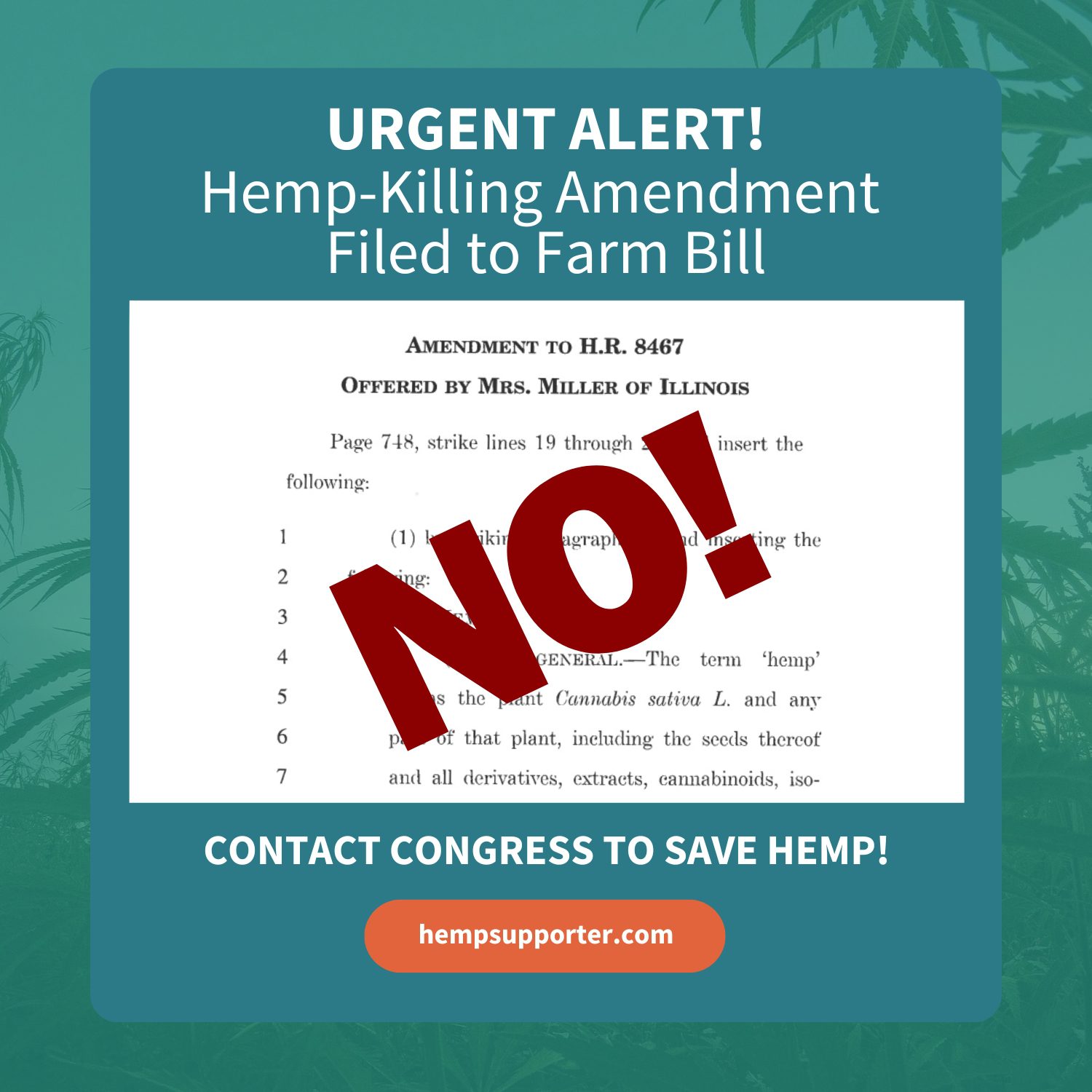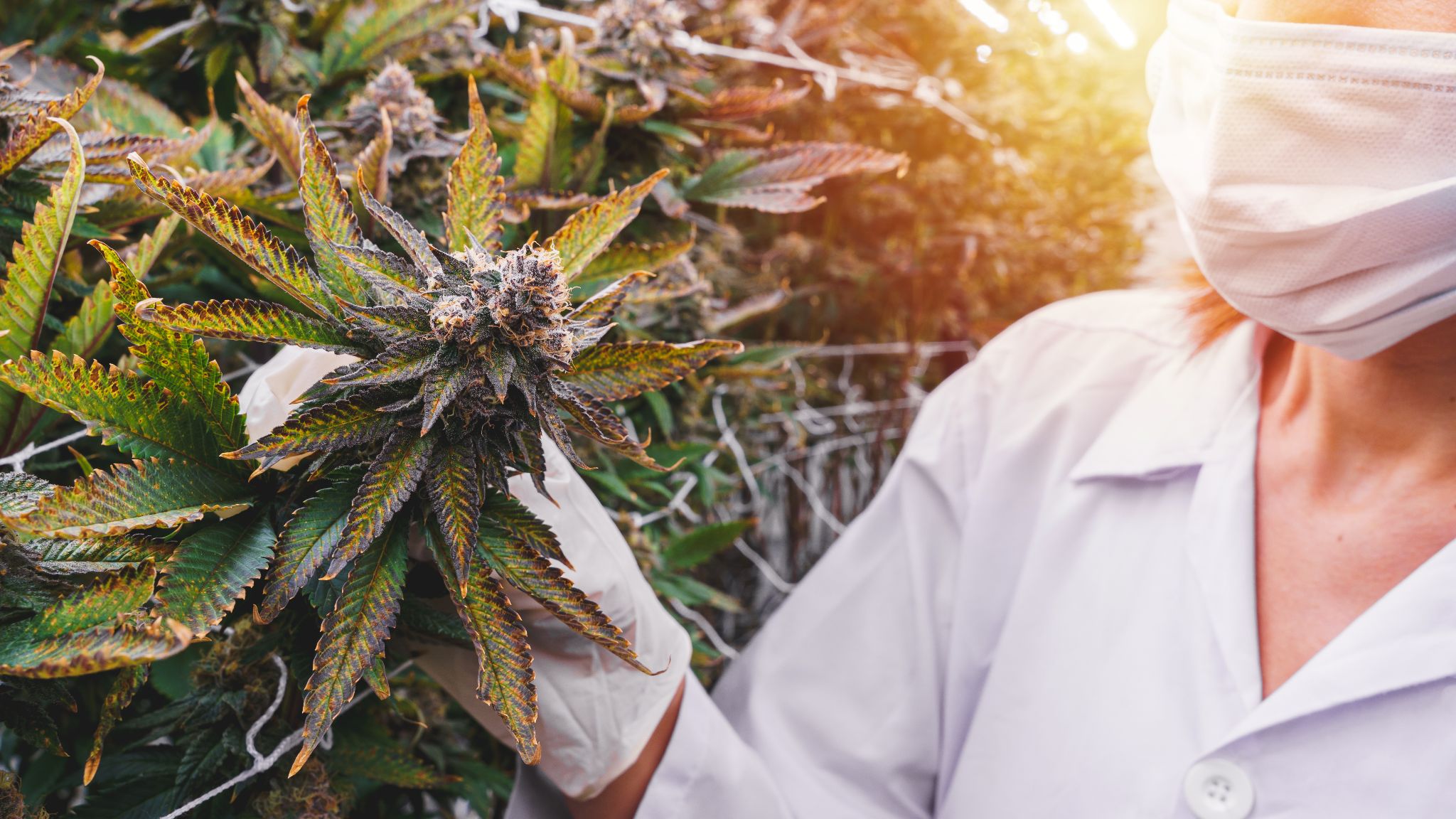The 2024 Farm Bill is fast approaching, and with it comes a series of critical decisions that could significantly reshape the hemp industry in the United States. The Farm Bill has long been a cornerstone of U.S. agricultural policy, addressing everything from food security to rural development. However, it has also become a battleground for the hemp industry, particularly following the transformative 2018 Farm Bill, which removed hemp from the Controlled Substances Act (CSA) and allowed the industry to flourish. As we look forward to the 2024 Farm Bill, the stakes are higher than ever, especially with the introduction of the Mary Miller Amendment, a proposal that threatens to undo much of the progress made in recent years.
The Role of the Farm Bill in U.S. Agricultural Policy
To understand the significance of the 2024 Farm Bill, it’s important to grasp the historical role of the Farm Bill itself. Passed every five years, the Farm Bill is a comprehensive piece of legislation that governs an array of agricultural and food programs. These bills have far-reaching impacts, influencing everything from crop insurance to nutritional assistance programs. For the hemp industry, the Farm Bill has become a key regulatory framework, especially since 2014, when the first provisions for hemp research were included. The 2018 Farm Bill marked a pivotal moment by fully legalizing hemp, which has since led to exponential growth in the industry.
Hemp Legislation Evolution: 2018 Farm Bill to 2024 Threats
The evolution of hemp legislation in the United States is a story of rapid change and adaptation. Prior to the 2018 Farm Bill, hemp was classified as a Schedule I substance under the CSA, lumped together with marijuana despite its non-intoxicating properties. This classification severely limited hemp production and research. The 2014 Farm Bill began to change that by allowing states to establish pilot programs for hemp cultivation. However, it was the 2018 Farm Bill that truly revolutionized the industry.
The 2018 Farm Bill: A Turning Point for Hemp
The 2018 Farm Bill removed hemp from the list of controlled substances, provided it contained no more than 0.3% Delta-9 THC. This distinction was crucial as it separated hemp from marijuana, allowing for the legal cultivation, processing, and sale of hemp and its derivatives, including CBD. States were given the authority to regulate hemp within their borders, leading to a diverse landscape of state-level regulations. This decentralization fostered innovation and growth, as companies across the country began to explore the potential of hemp in wellness, textiles, and even construction materials.
Economic Impact of the 2018 Farm Bill on the Hemp Industry
The economic impact of the 2018 Farm Bill cannot be overstated. By legalizing hemp, the bill unlocked a wave of investment and entrepreneurial activity. Farmers, facing declining prices for traditional crops like soybeans and corn, saw hemp as a profitable alternative. Hemp’s versatility—being used in everything from CBD products to biofuels—made it an attractive crop. As a result, thousands of farmers transitioned to hemp cultivation, and the industry saw a surge in jobs across various sectors, including farming, processing, and retail.
Growth in the Hemp-Derived Products Market
The legalization of hemp also led to a boom in the market for hemp-derived products. CBD, in particular, became a household name, appearing in products ranging from oils and tinctures to skincare and pet treats. This surge in demand created a new industry almost overnight, with companies racing to develop innovative products to meet consumer needs. The U.S. quickly became a leader in hemp production, and American companies set the standard for quality and innovation in the global market.
Hemp’s Role in Sustainable Development
Beyond its economic benefits, hemp also holds promise for sustainable development. Hemp’s fast growth cycle and ability to thrive in diverse climates make it an environmentally friendly crop. It requires fewer pesticides than other crops and can even improve soil health through phytoremediation. Additionally, hemp’s potential as a raw material for sustainable products, such as biodegradable plastics and eco-friendly construction materials, positions it as a key player in the green economy. The 2018 Farm Bill catalyzed research into these areas, further expanding the potential uses of hemp.
What’s at Stake in the 2024 Farm Bill for Hemp Producers?
As the 2024 Farm Bill approaches, the hemp industry faces a series of critical decisions that could either cement its place in the U.S. economy or introduce new challenges that could stifle its growth. Among the most pressing concerns are the potential redefinition of hemp and stricter regulation of cannabinoid products. These issues are not merely academic; they have real-world implications for farmers, businesses, and consumers who rely on the continued viability of the hemp industry.
Potential Redefinition of Legal Hemp: The 0.3% Delta-9 THC Threshold
One of the key aspects under scrutiny in the 2024 Farm Bill is the definition of legal hemp. The 2018 Farm Bill set the threshold for Delta-9 THC at 0.3%, a figure that has been both a blessing and a curse for the industry. While it allowed for the widespread cultivation of hemp, it also created challenges, particularly for products that contain other cannabinoids, such as Delta-8 THC. These cannabinoids are often present in trace amounts but can become concentrated in certain products, leading to legal ambiguity.
Potential Changes to the Definition
The 2024 Farm Bill could redefine what constitutes legal hemp, potentially excluding products containing cannabinoids like Delta-8 THC, THCA, HHC, Delta-10, and even CBD. Despite their compliance with the 0.3% Delta-9 THC limit, these cannabinoids have come under increased scrutiny due to their psychoactive properties. A redefinition could lead to the prohibition of many hemp-derived products that currently thrive in the market, such as our THCA flower and THCA disposable vapes. This would not only disrupt the market but could also cause significant financial losses for those invested in these products.
The Economic Impact of a Redefinition
The redefinition of legal hemp would have far-reaching economic consequences. For many farmers and producers, the current definition allows for a wide range of products that meet consumer demand. A more restrictive definition could narrow the market, forcing companies to abandon certain product lines or find alternative crops to cultivate. This could lead to job losses, reduced investment in hemp research and development, and a decline in U.S. leadership in the global hemp market.
The Mary Miller Amendment: A Direct Threat to the Hemp Industry
Perhaps the most alarming aspect of the 2024 Farm Bill is the Mary Miller Amendment, which poses a direct threat to the hemp industry as we know it. The amendment proposes to exclude any products with intoxicating cannabinoids from the definition of legal hemp. This broad and vague language could have catastrophic effects on the industry, criminalizing products that have been legally sold for years and reversing much of the progress made since the 2018 Farm Bill.
Understanding the Mary Miller Amendment
The Mary Miller Amendment seeks to tighten the definition of legal hemp by excluding any products that contain cannabinoids with intoxicating effects. This includes not only Delta-8 THC but also other cannabinoids that have yet to be fully understood or regulated. The amendment’s language is intentionally broad, leaving it open to interpretation and potential abuse by regulators who may seek to curb the growth of the hemp industry.
Legal and Economic Implications
If passed, the Mary Miller Amendment could lead to the criminalization of many hemp-derived products that are currently legal. This would not only disrupt the market but could also lead to legal challenges and uncertainty for businesses operating in the hemp sector. Companies that have invested heavily in the development of products containing cannabinoids like Delta-8 THC could find themselves facing massive losses, as these products would be effectively banned under the new definition of legal hemp.
The Impact on Small Businesses
Small businesses, in particular, would be hit hard by the Mary Miller Amendment. Many small hemp producers and retailers rely on the sale of cannabinoid-rich products to sustain their operations. The amendment could force these businesses to close or pivot to other markets, leading to job losses and a reduction in consumer choice. The economic ripple effect could be felt across the entire hemp supply chain, from farmers to retailers.
The Threat from Marijuana Corporate Conglomerates
In addition to the regulatory challenges posed by the Mary Miller Amendment, there are powerful groups that seek to dismantle the hemp industry entirely. A group of marijuana corporate alliances is working to destroy the hemp industry so they can control the entire cannabis supply chain, excluding small hemp businesses in the process. As Rod Knight, a prominent legal expert in the cannabis industry, points out in his article Yes, the Mary Miller Amendment Will Kill the ENTIRE Hemp Industry, Including Industrial Hemp, “This is not just about regulation; it’s about a deliberate attempt to monopolize the market and push out small, independent players who have been the backbone of the hemp industry.” These conglomerates view the hemp industry as a threat to their control over the broader cannabis market, and the Mary Miller Amendment provides a convenient tool to achieve their goals .
Navigating the Farm Bill Process: How Hemp Legislation Gets Passed
Understanding the legislative process behind the Farm Bill is crucial for those in the hemp industry. The Farm Bill is one of the most complex and significant pieces of legislation passed by Congress, with far-reaching implications for the agricultural sector and beyond. Navigating this process requires knowledge of the bill’s various stages, the key players involved, and the potential obstacles that could arise.
Drafting the Farm Bill: The Role of the House and Senate Agriculture Committees
The Farm Bill begins with the House and Senate Agriculture Committees, which are responsible for drafting the initial legislation. These committees consist of members of Congress who have a deep understanding of agricultural issues and who represent the interests of their constituents. The drafting process involves extensive consultations with stakeholders, including farmers, industry groups, and advocacy organizations. For the hemp industry, this is a critical stage where lobbying efforts can influence the content of the bill.
Committee Review and Markup: Shaping the Bill’s Provisions
Once the initial draft is completed, it goes through a process known as “markup,” where committee members review the bill’s provisions and make amendments. This is a key stage where contentious issues, such as the Mary Miller Amendment, can be debated and potentially modified or removed. Stakeholders in the hemp industry must pay close attention to this process and engage with their representatives to advocate for favorable outcomes.
Debate and Voting: The Path to Passage
After the markup process, the bill is brought to the floor of both the House of Representatives and the Senate for debate and voting. This is where the full membership of both chambers has the opportunity to weigh in on the bill. Given the complexity of the Farm Bill and the diverse interests it represents, the debate can be lengthy and contentious. It’s not uncommon for certain provisions to be hotly contested, leading to delays and the need for temporary extensions of the current Farm Bill.
Reconciliation and Final Passage: Bridging the Gap
If the House and Senate pass different versions of the Farm Bill, a conference committee is formed to reconcile the differences. This committee, composed of members from both chambers, negotiates a final version of the bill that must be approved by both the House and Senate. The final step is the President’s signature, which officially enacts the bill into law. Given the contentious issues surrounding the 2024 Farm Bill, particularly the Mary Miller Amendment, it’s possible that the bill could face significant delays, requiring temporary extensions to keep current programs running.
Protect the Future of the Hemp Industry: Why You Need to Act Now
The future of hemp in the United States is at a critical juncture. The Mary Miller Amendment and the potential redefinition of legal hemp threaten to reverse years of progress and impose unnecessary restrictions on a thriving industry. If these changes are enacted, the economic and social benefits of hemp could be severely curtailed, leading to a loss of jobs, reduced consumer access to beneficial products, and diminished U.S. leadership in the global hemp market.
The Power of Advocacy: How Your Voice Can Make a Difference
In the face of these challenges, it’s more important than ever for those involved in the hemp industry to make their voices heard. Advocacy efforts can play a crucial role in shaping the outcome of the 2024 Farm Bill. By contacting your members of Congress and urging them to oppose the Mary Miller Amendment, you can help protect the future of hemp in the United States. Legislators respond to the concerns of their constituents, and a strong, unified message from the hemp community can make a significant impact.
Steps You Can Take Today
- Contact Your Representatives: Reach out to your members of Congress by phone, email, or social media. Express your concerns about the Mary Miller Amendment and the potential redefinition of legal hemp. Provide them with specific examples of how these changes could impact your business or community.
- Join Industry Organizations: Become a member of industry organizations that advocate for the hemp industry at the national level. These organizations often have the resources and expertise to effectively lobby on behalf of their members.
- Educate Your Community: Share information about the 2024 Farm Bill and its potential impact on the hemp industry with your community. The more people who are informed and engaged, the stronger the opposition to harmful amendments like the Mary Miller Amendment will be.
- Support Advocacy Campaigns: Contribute to campaigns that are working to protect the hemp industry. Whether through financial support or volunteer efforts, your contribution can help ensure that the hemp industry continues to thrive.
Protect the Future of the Hemp Industry Today!
The time to act is now. The Mary Miller Amendment threatens to reverse years of progress and impose unnecessary restrictions on a thriving industry. Contact your members of Congress now and urge them to oppose the Mary Miller Amendment in the 2024 Farm Bill. This amendment threatens small businesses, stifles innovation, and could have disastrous consequences for the entire hemp industry. Don’t wait—act now to ensure that hemp continues to be a vital part of the American agricultural landscape.







